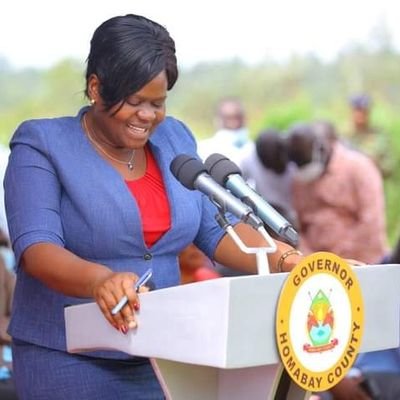Homa Bay Governor Gladys Wanga has criticized Controller of Budget (CoB) Dr. Margaret Nyakang’o, accusing her of exceeding her constitutional mandate and encroaching on the role of the Auditor-General. In a candid interview with NTV on Thursday, Governor Wanga acknowledged Nyakang’o as a “strong, competent woman,” but expressed concern that her office’s role had extended beyond budget oversight into audit-level scrutiny.
“To oversight budget implementation means ensuring you are implementing your budget as stated. But if you ask me for receipts of how I spent the money, that becomes auditing,” Wanga stated. She argued that such demands fall squarely within the jurisdiction of the Auditor-General and not the CoB.
Wanga cited instances where counties were reportedly required to submit extensive documentation, including receipts and contracts, when making requisitions—a practice she says hampers service delivery. “If you withhold money because you say I misused the last funds you approved, how do I work? I have people I am answerable to,” she posed.
She emphasized that the CoB’s role should primarily be to approve budgets at the beginning of the fiscal year and ensure they align with constitutional guidelines. “Once she starts flagging things in the middle of the financial year, it creates conflict,” Wanga said.
These comments come amid ongoing tension between county governments and the Office of the Controller of Budget over delayed disbursements. Last month, the Council of Governors (CoG) announced plans to petition Parliament for Nyakang’o’s removal, accusing her of obstructing county operations.
CoG Chairperson and Wajir Governor Ahmed Abdullahi labeled Nyakang’o “the biggest threat to devolution,” citing her alleged insistence on physical documentation and prolonged approval processes. “She has become intransigent and unreasonable… taking county governments through hell in accessing money,” he said.
Abdullahi particularly criticized delays in disbursing bursary funds, questioning why counties must “carry invoices, contracts, and receipts all the way from Wajir and queue in her office.”
The dispute underscores the growing friction between oversight institutions and devolved units, with county leaders urging for clearer boundaries to streamline service delivery.

